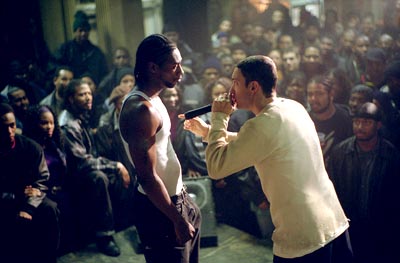1. Knowing - "Knowing is Everything."
2. Bangkok Dangerous - Something's happening in Bangkok, and it's probably not safe...
3. National Treasure: Book of Secrets - Fresh off a thrilling adventure in the first installment that involved a hidden treasure map on the back of the Declaration of Independence, the gang is back to uncover ancient Native American gold hidden within Mount Rushmore!
4. Next - Nuclear terrorism is afoot, and Nic Cage, Vegas magician, is the world's only hope.
This is a guy about whom YouTube videos are made en masse (thanks, NicCageFanClub1) solely to evidence the sheer ridiculousness of his frequent affronts to cinema. The actor whose movies even Kevin (and his early-onset Alzheimer’s) agrees he’d be most likely to avoid among Hollywood’s current leading men. The man who, after making the epic failure that was Ghost Rider, actually decided to re-up for a sequel to further his quest to make more people voluntarily claw out their own eyes. An actor whose recent run of movie-making futility has been so painful, I’m actually scared to turn on the TV during the summer for fear of watching 30 seconds of his next “I’ll-grow-out-my-hair-and-then-look-thinky-for-2-hours” debacle.

Knowing: Ooh, I’m thinky…

Next: Oh yeah, now my hair’s even longer, and I’m still thinky…

This isn’t even a movie, that’s how thinky I am!
Sure, Cage made a couple of decent movies in his distant past, but few of them depended on his acting prowess – The Rock was great, but does Nic Cage deserve a ton of credit for playing Overwhelmed Guy? – and none of his recent offerings have done anything but steal money from audiences and make babies cry. And yeah, he won an Oscar, which is basically a Hollywood political popularity vote, allowing him to join the illustrious ranks of Jennifer Connelly and Kate “The Female McConaughey” Hudson in the acting pantheon.
What’s worse, if Cage does possess any true talent, he’s even more unlikeable for electing to unleash such a garbage parade on humanity over the past half-decade. You can’t really criticize Keanu Reeves for poor acting; it’s all he can do. But if Cage can do better – and at this point, who would actually believe he can? – it’s an even bigger slap in the movie-going public’s face that he continues a nearly unprecedented run of sad clown cinema just to cash a check. In the medicine metaphor, Cage isn’t the plastic surgeon who sells out with breast augmentations instead of cleft palate repairs in the third world, he’s the doc that runs a healthy patient through the excessive work-up ringer to squeeze out as much insurance compensation as possible, delivering substandard care (and perhaps a bit of iatrogenic psychological trauma for good measure) to line his own and the hospital/movie studio’s pockets.
Honestly, Nic, how do you sleep at night? At least Kevin’s cortical tau body extravaganza gives him a legitimate excuse for supporting you…





